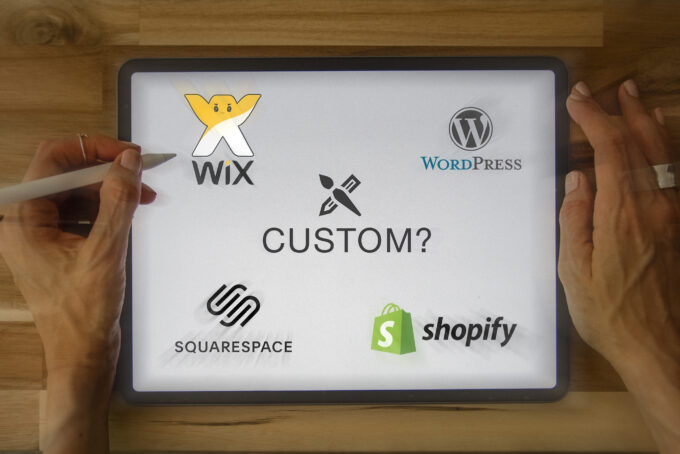In today’s digital age, having a website is essential for businesses and individuals alike. When it comes to creating a website, there are several options available, ranging from DIY builder platforms like SquareSpace and Wix to custom-coded websites. In this blog post, we’ll explore the pros and cons of both approaches to help you make an informed decision.
DIY Building Platforms
DIY building platforms like SquareSpace and Wix have gained popularity due to their ease of use and quick setup. These platforms provide a range of templates and basic building blocks that enable even those with minimal technical knowledge to create a functional website. They are an excellent starting point for beginners who want to explore their website needs and experiment with different designs.
One of the key advantages of DIY builders is their simplicity. With drag-and-drop interfaces and pre-designed templates, you can quickly build a website without getting into the complexities of coding. Additionally, these platforms often offer integrated hosting and provide customer support, making them suitable for those who require minimal maintenance and technical assistance.
However, it’s important to note that DIY builders have their limitations. While they offer a variety of customization options, they may not always provide the flexibility and versatility needed for complex website requirements. Moreover, as your website grows, you may encounter performance issues, as DIY builder themes tend to be resource-heavy and can result in slower loading times.
DIY and Visual Builder Themes in WordPress
For those using WordPress, DIY and visual builder themes provide a middle ground between DIY builders and custom-coded websites. These themes offer greater flexibility and customization options compared to DIY builders. With visual builders, you can create unique layouts and designs using intuitive drag-and-drop interfaces. While these themes can achieve impressive results, they often come with a learning curve, requiring some time and effort to master.
Custom Websites
On the other end of the spectrum, custom-coded websites offer limitless possibilities. Building a custom website involves research, design, coding, optimization, and tuning for SEO and performance. While it requires more time and expertise, the benefits can be substantial.
A custom website allows you to tailor every aspect of your online presence to your specific needs. With optimized code and streamlined functionality, custom websites tend to have superior performance, resulting in faster loading times and improved search engine optimization. Additionally, as your business evolves, a custom website can be easily expanded and adapted to meet your changing requirements.
Shipilin.com: Your Custom Website Solution
At Shipilin.com, we specialize in providing professional branding, design, development, hosting, and support for custom websites and online solutions. Our team understands the intricacies of building a unique online presence that aligns with your goals. We prioritize speed, performance, and search engine optimization to ensure your website stands out from the crowd.
When it comes to choosing between a DIY builder or a custom-coded website, it ultimately depends on your specific needs and long-term goals. DIY builders offer simplicity and quick setup, making them suitable for beginners and those with basic requirements. Visual builder themes provide more flexibility within the WordPress framework. However, if you seek a truly custom online presence that can grow and adapt with your business, a custom-coded website is the ideal solution. With Shipilin.com, you can rely on professional expertise to create a website that exceeds your expectations and drives your online success.



